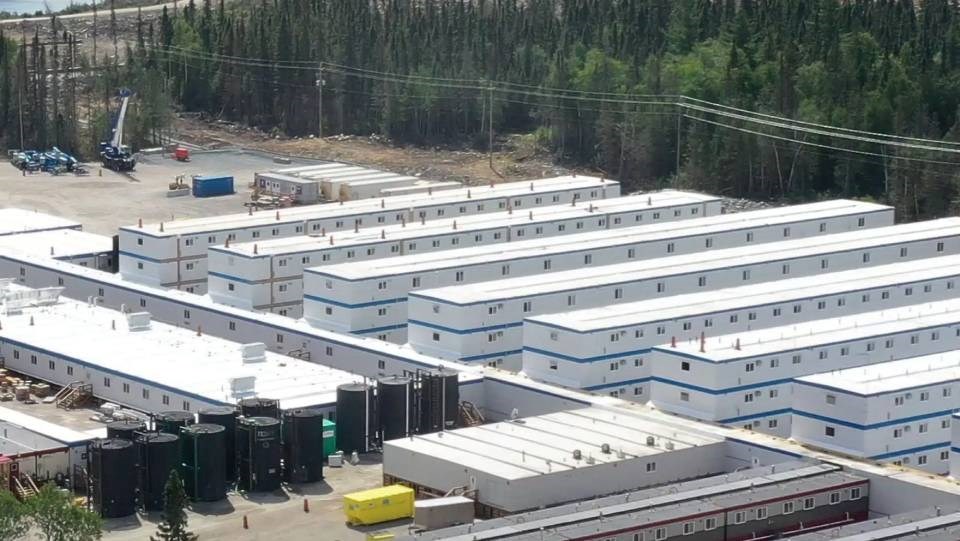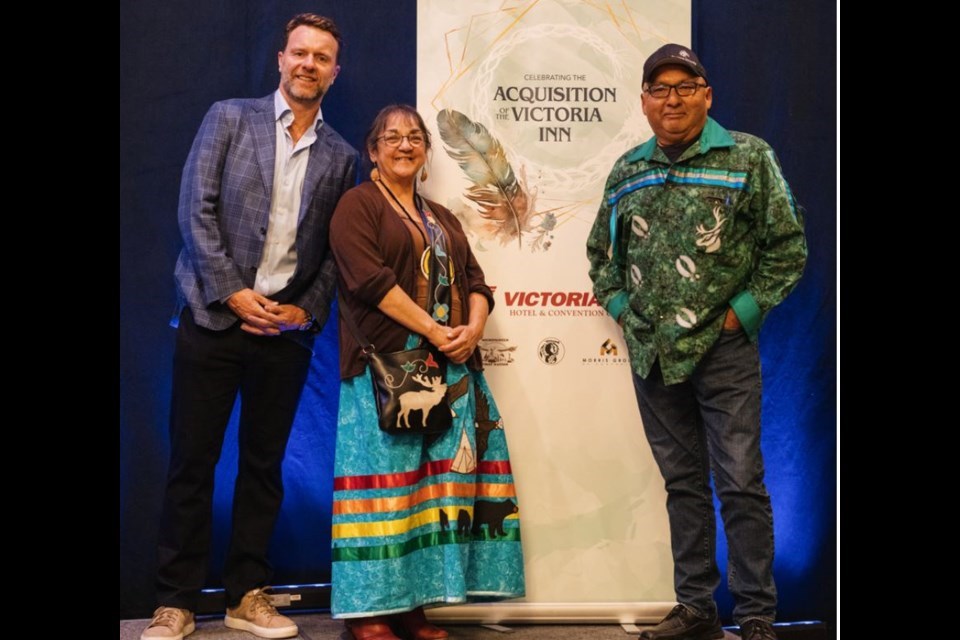When David Morris considered partnering on the $31-million purchase of the Victoria Inn Hotel & Convention Centre earlier this year, it was a little outside his wheelhouse.
Over the last two decades, Morris has made his name designing, constructing and selling modular buildings — offices, mine drys, washrooms, housing — not operating legacy accommodations like the Victoria Inn.
Built in 1974, the Thunder Bay establishment has long been a gathering place for Indigenous conferences and conventions, and serves as a premier facility for weddings, business meetings and tourism stays. A block of rooms is also set aside for Indigenous clients arriving in the city for medical appointments.
Michipicoten First Nation and Naicatchewenin First Nations saw the acquisition as an investment opportunity for the two communities and, together, put up all the capital for the purchase.
Impressed by their progressive approach, Morris signed on to the transaction, which he called “the first deal of its kind.” Morris Group of Companies became a general partner and the managing partner of the property.
“It’s really, to me, forward-thinking of First Nations business where the communities can work in not just, say, their territory or with a particular project, but look to expand their horizons and investments into other areas,” Morris said.
Want to read more stories about business in the North? Subscribe to our newsletter.
In making this assessment about his new partners, Morris could easily be speaking about himself.
Originally trained in dentistry, Morris ventured into entrepreneurship in the mid-2000s and has continued to build a diverse portfolio of businesses under the Morris Group.
He launched his first venture, Morris Modular, with a partner in 2005, to rent modular trailers to companies needing extra space for offices, washrooms, or other ancillary buildings. A spinoff, Morris Trucking, followed that same year, and Morris Drilling was added in 2007.
Morris ventured into entertainment in 2006 with the development of a Sudbury nightclub, SRO, and by 2009, he had launched his own staffing and recruiting firm, Workforce.
Headquartered in Sudbury, Workforce now operates multiple offices across Ontario, as well as in Saskatchewan, Newfoundland, and Texas.
For his efforts, Northern Ontario Business awarded David Morris the Young Entrepreneur of the Year Award in 2007.
In more recent years, Morris has found his bread and butter in modular camp housing for remote work sites, where his company does everything from construction through to the management of the site, which includes catering and housekeeping.

One example of this model is Flying Post Camp + Logistics, a partnership with Flying Post First Nation. It involved the construction and ongoing operation of a work camp for 1,500 people at IAMGOLD’s Côté Gold site in Gogama where the company is developing an underground gold mine.
“That’s, by far, the biggest project,” Morris said.
Most recently, he’s ventured into urban development, bringing modular housing to the residential market, with some projects already on the go.
Morris Group is a cofounder of a 160-home subdivision in Hamilton and is currently engaged with a development group on a major First Nations housing project, Morris said. The company is also in the final year of a 150-unit project in Waterford, and has additional prospects in Quebec and the East Coast.
With affordable housing emerging a countrywide challenge, Morris said his company has already been approached about the issue and is now looking toward that sector as its next area of entry.
“The new housing minister in Ontario (Paul Calandra) made a big commitment to sustainable/modular housing, and because we’ve been very proficient in modular construction, I feel like we’re going to have an opportunity to play a role in it,” he said.
Modular housing could be a good fit for First Nations in particular, especially with mining activity ramping up in the North, he added.
“With the impact benefit agreements that the First Nations have with a lot of these mining companies, I could see a big emphasis for them on some type of a commitment from the mining companies for housing for them, long term.”
As he embarks on his new partnership with Michipicoten and Naicatchewenin, Morris said the Victoria Inn is in “beautiful” condition and won’t require much immediate upkeep, although Morris Group will set aside funds every year for general maintenance to ensure it’s kept in good shape.
So pleased is Morris with the arrangement, he said it’s set the stage for similar future partnerships in which the company can invest in making an impact on the communities and the residents it serves.
“I’m happy,” he said. “I’ve never seen anyone else do this, so I feel like we were one of the first groups to bring something that’s very unique to some local communities, which is great.”

